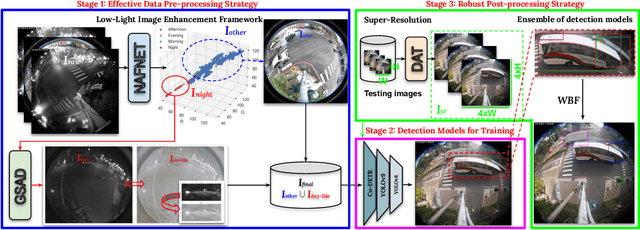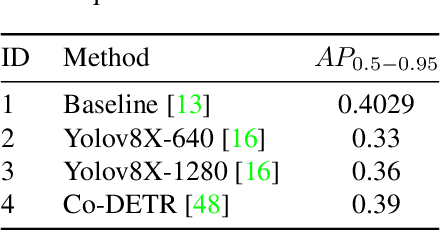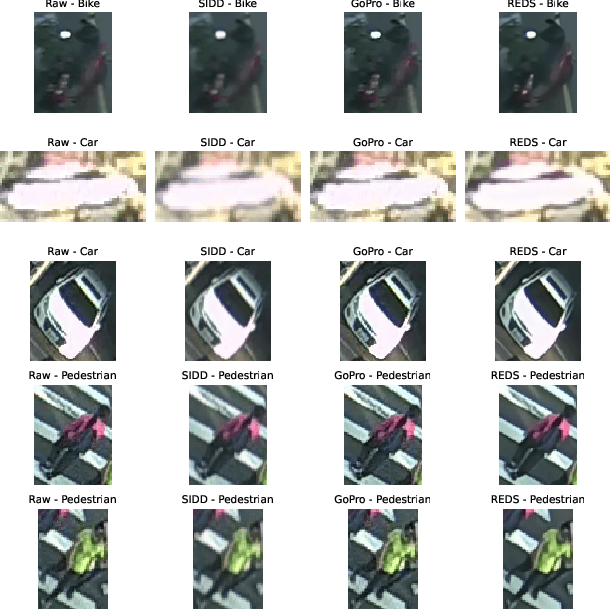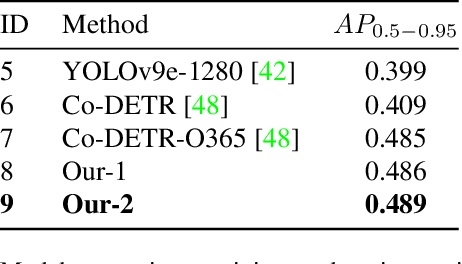Dai Quoc Tran
Low-Light Image Enhancement Framework for Improved Object Detection in Fisheye Lens Datasets
Apr 15, 2024



Abstract:This study addresses the evolving challenges in urban traffic monitoring detection systems based on fisheye lens cameras by proposing a framework that improves the efficacy and accuracy of these systems. In the context of urban infrastructure and transportation management, advanced traffic monitoring systems have become critical for managing the complexities of urbanization and increasing vehicle density. Traditional monitoring methods, which rely on static cameras with narrow fields of view, are ineffective in dynamic urban environments, necessitating the installation of multiple cameras, which raises costs. Fisheye lenses, which were recently introduced, provide wide and omnidirectional coverage in a single frame, making them a transformative solution. However, issues such as distorted views and blurriness arise, preventing accurate object detection on these images. Motivated by these challenges, this study proposes a novel approach that combines a ransformer-based image enhancement framework and ensemble learning technique to address these challenges and improve traffic monitoring accuracy, making significant contributions to the future of intelligent traffic management systems. Our proposed methodological framework won 5th place in the 2024 AI City Challenge, Track 4, with an F1 score of 0.5965 on experimental validation data. The experimental results demonstrate the effectiveness, efficiency, and robustness of the proposed system. Our code is publicly available at https://github.com/daitranskku/AIC2024-TRACK4-TEAM15.
Skip-Connected Neural Networks with Layout Graphs for Floor Plan Auto-Generation
Sep 26, 2023



Abstract:With the advent of AI and computer vision techniques, the quest for automated and efficient floor plan designs has gained momentum. This paper presents a novel approach using skip-connected neural networks integrated with layout graphs. The skip-connected layers capture multi-scale floor plan information, and the encoder-decoder networks with GNN facilitate pixel-level probability-based generation. Validated on the MSD dataset, our approach achieved a 93.9 mIoU score in the 1st CVAAD workshop challenge. Code and pre-trained models are publicly available at https://github.com/yuntaeJ/SkipNet-FloorPlanGe.
 Add to Chrome
Add to Chrome Add to Firefox
Add to Firefox Add to Edge
Add to Edge